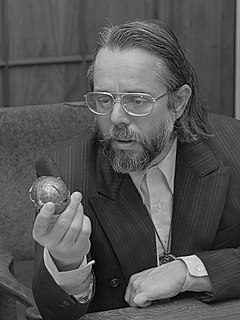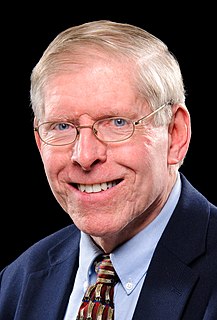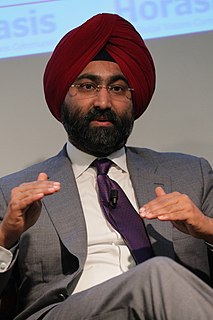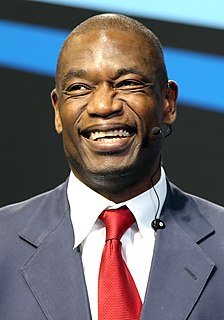A Quote by Frans van Houten
Healthcare continues to move outside the hospital and into our homes and everyday lives. With leading doctors and psychologists, for example, we've developed personal health programs designed around patients to catalyze sustainable behavioural change.
Related Quotes
People and organizations other than doctors increasingly are assuming power to decide which medications to prescribe or procedures to undertake. More and more, decisions about personal healthcare are no longer made by the treating physicians in consultation with their patients, and based on the doctors' expertise.
I'm writing about the things I see all around me. Growing up in Mississippi, I've seen how these backward ideas about class and race and healthcare and education and housing and racism impact everyday lives. For example, my mother wouldn't let me go to my homecoming dance because the yacht club where they were having the dance threw a fundraiser for David Duke, an ex-Klan member, when he was running for governor of Louisiana. So I grew up seeing how personal politics could be.
The relationships we have with our doctors are often the most trusted relationships of our lives. Our doctors tell us hard truths that others will not. We often tell our doctors what we will not tell others. We trust our doctors to give us the good, the bad and the ugly about our health so that each of us can make an informed decision.
"Religion" can no more be equated with what goes on in churches than "education" can be reduced to what happens in schools or "health care" restricted to what doctors do to patients in clinics. The vast majority of healing and learning goes on among parents and children and families and friends, far from the portals of any school or hospital. The same is true for religion. It is going on around us all the time. Religion is larger and more pervasive than churches.
The question that I can't shake - it's this question that keeps coming up for me - is What does the shared home of the future look like? People are sharing homes at a rate that no one ever predicted, but residences and homes weren't designed for it. They were designed around ideas of privacy and separation.
There has been a vigorous acceleration of health, resource and education programs designed to advance the role of the American Indian in our society. Last Fall, for example, 91 percent of the Indian children between the ages of 6 and 18 on reservations were enrolled in school. This is a rise of 12 percent since 1953.



































